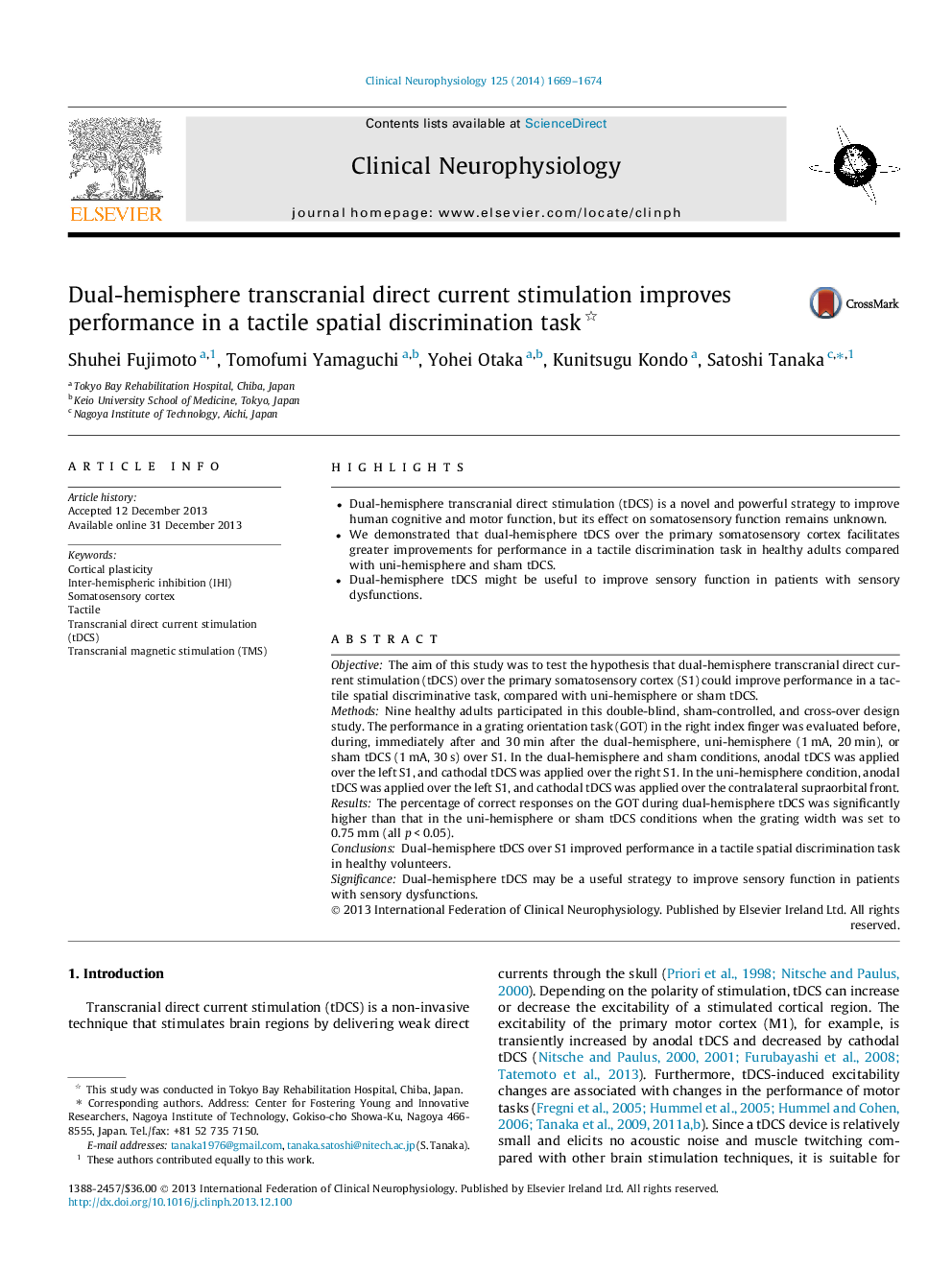| Article ID | Journal | Published Year | Pages | File Type |
|---|---|---|---|---|
| 3043495 | Clinical Neurophysiology | 2014 | 6 Pages |
•Dual-hemisphere transcranial direct stimulation (tDCS) is a novel and powerful strategy to improve human cognitive and motor function, but its effect on somatosensory function remains unknown.•We demonstrated that dual-hemisphere tDCS over the primary somatosensory cortex facilitates greater improvements for performance in a tactile discrimination task in healthy adults compared with uni-hemisphere and sham tDCS.•Dual-hemisphere tDCS might be useful to improve sensory function in patients with sensory dysfunctions.
ObjectiveThe aim of this study was to test the hypothesis that dual-hemisphere transcranial direct current stimulation (tDCS) over the primary somatosensory cortex (S1) could improve performance in a tactile spatial discriminative task, compared with uni-hemisphere or sham tDCS.MethodsNine healthy adults participated in this double-blind, sham-controlled, and cross-over design study. The performance in a grating orientation task (GOT) in the right index finger was evaluated before, during, immediately after and 30 min after the dual-hemisphere, uni-hemisphere (1 mA, 20 min), or sham tDCS (1 mA, 30 s) over S1. In the dual-hemisphere and sham conditions, anodal tDCS was applied over the left S1, and cathodal tDCS was applied over the right S1. In the uni-hemisphere condition, anodal tDCS was applied over the left S1, and cathodal tDCS was applied over the contralateral supraorbital front.ResultsThe percentage of correct responses on the GOT during dual-hemisphere tDCS was significantly higher than that in the uni-hemisphere or sham tDCS conditions when the grating width was set to 0.75 mm (all p < 0.05).ConclusionsDual-hemisphere tDCS over S1 improved performance in a tactile spatial discrimination task in healthy volunteers.SignificanceDual-hemisphere tDCS may be a useful strategy to improve sensory function in patients with sensory dysfunctions.
